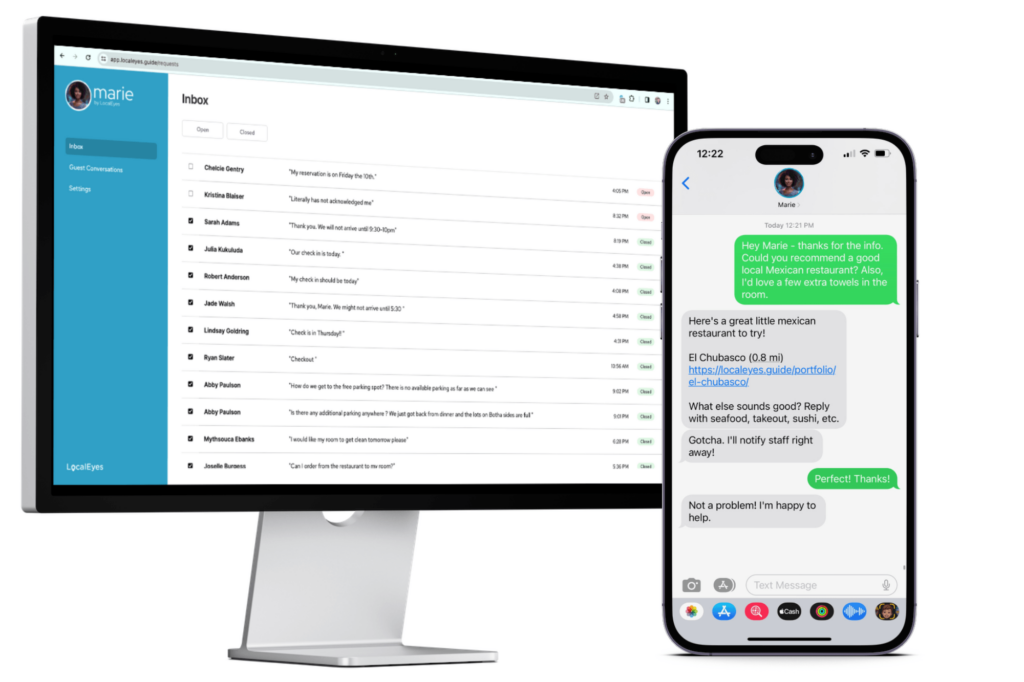Can AI really hold a conversation with hotel guests?
Nov. 15, 2023

In recent years, the hospitality industry has witnessed a significant transformation, thanks to the increasing capabilities of Artificial Intelligence (AI). One notable development is the ability of AI to engage in realistic conversations, but in an industry with such a heavy emphasis on face to face interaction, is this AI realistic for hotels?
See 10 Reasons Why Hotels Are Choosing Chat Bots
The Evolution of Conversational AI:
Conversational AI has come a long way since its inception. Early chatbots were often clunky, providing generic responses and struggling to understand the nuances of human language. However, with advancements in natural language processing (NLP) and machine learning, modern conversational AI systems have reached unprecedented levels of sophistication.
Hotels are increasingly leveraging these AI systems to streamline various aspects of guest interaction. From handling reservations and check-ins to providing local recommendations and fielding guest requests, AI-powered chatbots are becoming an integral part of the guest experience.
Personalized Assistance and Recommendations:
One of the key strengths of conversational AI lies in its ability to offer personalized assistance. By analyzing guest preferences and past interactions, AI systems can tailor recommendations and services to meet individual needs. Whether it’s suggesting nearby restaurants, arranging transportation, or providing information about hotel amenities, guests can enjoy a customized experience that goes beyond the one-size-fits-all approach of traditional services.
Efficiency and Convenience:
Conversational AI in the hotel industry is not just about delivering a personalized experience; it’s also about enhancing efficiency and convenience. AI-powered chatbots can handle routine tasks such as room service requests, housekeeping inquiries, and even booking spa appointments. This not only frees up hotel staff to focus on more complex guest needs but also ensures that guests can access services promptly and effortlessly, enhancing overall satisfaction.
24/7 Accessibility:
Unlike human staff, AI-powered chatbots are available around the clock. This 24/7 accessibility is a game-changer for the hospitality industry, especially for international travelers who may have different time zones. Guests can get instant responses to their queries or requests, contributing to a more responsive and guest-centric service model.
Overcoming Language Barriers:
In a globalized world, hotels often cater to guests from diverse linguistic backgrounds. Conversational AI breaks down language barriers by offering multilingual support. Guests can communicate in their preferred language, and the AI system can seamlessly translate and respond, fostering better communication and understanding.
Challenges and Considerations:
While the rise of conversational AI in the hospitality industry brings numerous benefits, there are challenges and considerations to address. Ensuring data security and privacy, fine-tuning NLP algorithms for cultural nuances, and maintaining a balance between automation and human touch are critical factors that require careful attention.
The short answer here is yes, the right AI can hold a great conversation with a guest and ultimately be a tremendous addition to your team. It is important, however, that we use AI to enhance our guest service, not replace it.